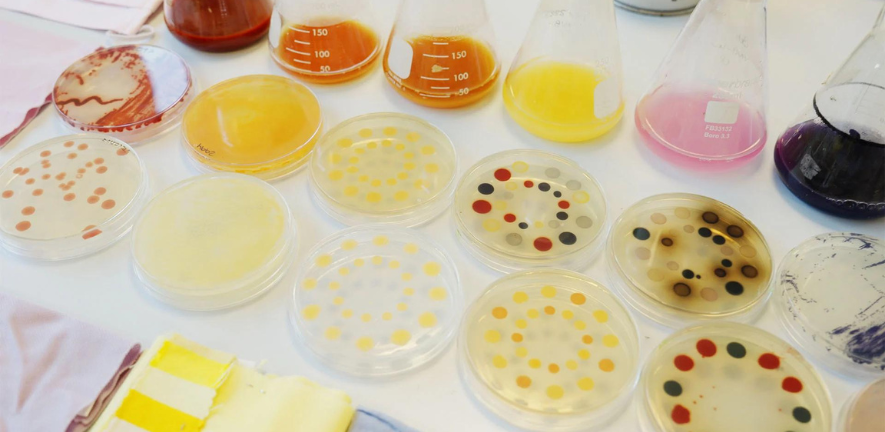
Submitted by Livia Harriman on Wed, 25/10/2023 - 11:52
Colorifix uses DNA sequencing and nature’s own colours to create sustainable dyes that reduce the fashion industry’s use of water and harmful chemicals.
UK-based Colorifix—an enterprise founded by members of the Department of Pathology—has an innovative solution derived from nature.
Inspired by their study of water contamination in Nepal, founders Orr Yarkoni and Jim Ajioka have created an efficient fabric-dyeing process that uses the DNA codes for natural colours and teaches microbes to recreate them. Just as brewing beer uses the power of microorganisms to ferment wheat, Colorifix is harnessing microscopic life to make natural fabric dyes.
The process begins with Colorifix identifying a colour created naturally by an animal, plant or microbe. Then, using DNA sequencing, they remember where that colour is coded in the genetics of that organism. The DNA code is then translated into Colorifix’s engineered microorganisms, enabling them to produce the pigment—just as it is made in nature —and transfer it to the fabric.
Colorifix’s natural dyes cut chemical pollution by 80%, and when applied to fabrics, they require far fewer rinses than synthetic dyes, ultimately saving vast quantities of water. Already gaining traction in the fashion industry, Colorifix has ambitions to dye 15% of the world’s clothes by 2030, helping big manufacturers make good on their sustainability targets.
They have recently been named finalists in the 2023 Earthshot Prize.
Find out more about Colorfix here>>
Find out more about the Earthshot Prize here>>

